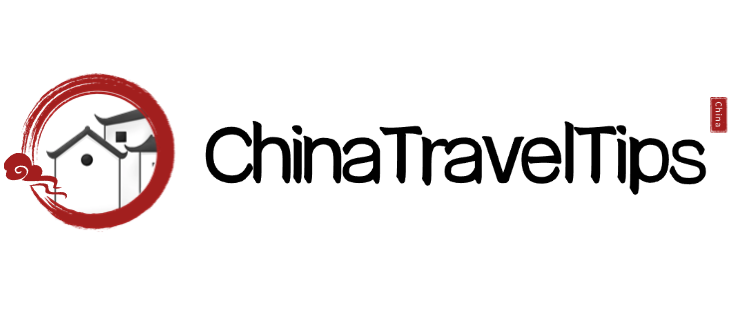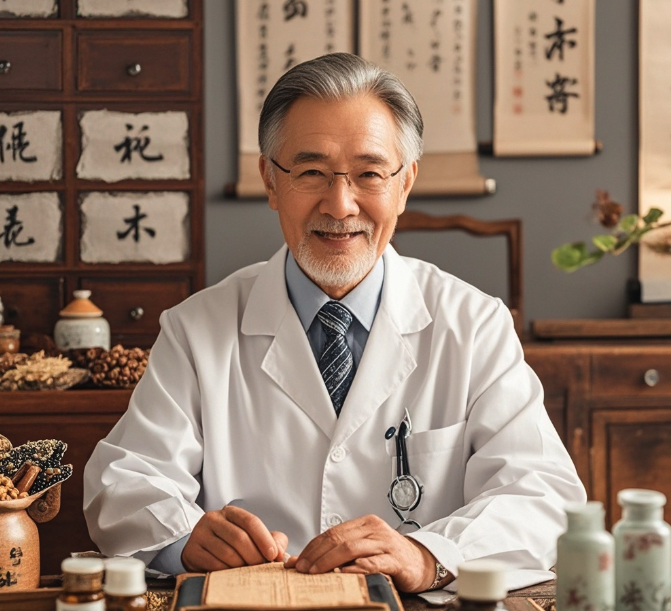In recent years, Traditional Chinese Medicine (TCM) has gained global recognition for its holistic approach to health and wellness. As a result, TCM tourism in China has surged, offering visitors unique opportunities to experience ancient healing practices firsthand. This comprehensive guide will introduce you to the world of TCM tourism, highlighting top destinations, popular treatments, what to expect during your wellness journey in China, and how to make the most of your experience.
Understanding Traditional Chinese Medicine(TCM)
Traditional Chinese Medicine is a comprehensive system of health and healing that has been developed and refined over thousands of years. To fully appreciate your TCM tourism experience, it’s essential to understand some key concepts:
Key Concepts in TCM
- Yin and Yang:
- Represents the balance of opposing forces in the body
- Health is achieved when Yin and Yang are in harmony
- Qi (Chi):
- The vital energy that flows through the body
- Blockages or imbalances in Qi are believed to cause illness
- Five Elements:
- Wood, Fire, Earth, Metal, and Water
- Each corresponds to different organs and systems in the body
- Used to understand the interrelationships between body functions
- Meridians:
- Energy pathways in the body through which Qi flows
- Basis for acupuncture and acupressure treatments
TCM treatments aim to restore balance and promote overall wellness, rather than just treating specific symptoms. This holistic approach is what attracts many to TCM tourism.
Popular TCM Treatments for Tourists
1. Acupuncture
- Process: Thin needles are inserted at specific points on the body
- Benefits: Aims to balance the flow of Qi and alleviate various ailments
- Duration: Typically 30-60 minutes per session
- Best for: Pain relief, stress reduction, digestive issues
2. Cupping Therapy
- Process: Glass cups create suction on the skin
- Benefits: Believed to improve blood flow and reduce muscle tension
- Duration: Usually 10-20 minutes
- Best for: Muscle pain, respiratory issues, improving circulation
3. Herbal Medicine
- Process: Personalized herbal formulas based on individual needs
- Forms: Teas, pills, powders, or topical applications
- Duration: Often prescribed for daily use over weeks or months
- Best for: Various health concerns, from digestive issues to skin problems
4. Tui Na Massage
- Process: A therapeutic massage that targets acupressure points
- Benefits: Aims to improve Qi flow and treat various conditions
- Duration: Typically 30-60 minutes
- Best for: Musculoskeletal problems, headaches, insomnia
5. Qigong and Tai Chi
- Process: Gentle exercises combining movement, meditation, and breathing
- Benefits: Promote balance, flexibility, and overall well-being
- Duration: Classes usually last 60-90 minutes
- Best for: Stress reduction, improving balance and flexibility
Top Destinations for TCM Tourism in China
1. Beijing
- Highlights:
- Beijing University of Chinese Medicine
- Offers short courses and demonstrations for tourists
- Tong Ren Tang – centuries-old TCM pharmacy
- Founded in 1669, now has a museum showcasing TCM history
- Beijing University of Chinese Medicine
- Recommended Experience:
- Half-day TCM workshop at Beijing University of Chinese Medicine
- Guided tour of Tong Ren Tang, including tea tasting of medicinal herbs
2. Shanghai
- Highlights:
- Shanghai Museum of Traditional Chinese Medicine
- Interactive exhibits on TCM theories and practices
- Longhua Hospital – integrates TCM with Western medicine
- Offers acupuncture and massage treatments for tourists
- Shanghai Museum of Traditional Chinese Medicine
- Recommended Experience:
- Combine a museum visit with a TCM consultation and treatment at Longhua Hospital
3. Hangzhou
- Highlights:
- Hu Qing Yu Tang Museum of Traditional Chinese Medicine
- Located in a beautiful Qing Dynasty building
- Fang Hui Chun Tang – famous TCM clinic and pharmacy
- Offers personalized herbal prescriptions
- Hu Qing Yu Tang Museum of Traditional Chinese Medicine
- Recommended Experience:
- Tea plantation tour combined with TCM herbal education at Hu Qing Yu Tang
4. Sanya, Hainan Island
- Highlights:
- Luxury wellness resorts offering TCM treatments
- Example: Sanya Traditional Chinese Medicine Hospital Treatment Center
- Beautiful tropical setting for relaxation
- Luxury wellness resorts offering TCM treatments
- Recommended Experience:
- Week-long wellness retreat combining TCM treatments with beach relaxation
5. Chengdu
- Highlights:
- Sichuan Provincial Hospital of Traditional Chinese Medicine
- Known for its integration of TCM with modern medicine
- Local specialty: Sichuan herbal cuisine
- Sichuan Provincial Hospital of Traditional Chinese Medicine
- Recommended Experience:
- TCM food therapy workshop followed by a specially prepared medicinal meal
What to Expect at a TCM Wellness Retreat
- Initial Consultation:
- A TCM practitioner will assess your overall health
- May include tongue and pulse diagnosis
- Duration: Usually 30-60 minutes
- Personalized Treatment Plan:
- Based on the consultation, you’ll receive a tailored plan
- May include various therapies and dietary recommendations
- Typically outlined for the duration of your stay (e.g., 5-7 days)
- Daily Treatments:
- Your stay may include daily acupuncture, massage, or other therapies
- Usually 1-3 treatments per day, each lasting 30-60 minutes
- Herbal Remedies:
- You might be prescribed custom herbal formulas
- Instructions for preparation and consumption will be provided
- Often continued after your retreat
- Wellness Classes:
- Many retreats offer classes in Tai Chi, Qigong, meditation, or TCM nutrition
- Usually offered in the morning or evening, lasting 60-90 minutes
- Healthy Cuisine:
- Expect meals designed according to TCM principles
- Often vegetarian or plant-based
- May include medicinal herbs and ingredients
- Educational Components:
- Lectures or workshops on TCM principles and practices
- Cooking classes focusing on TCM dietary theories
- Relaxation Time:
- Free time for reflection, journaling, or enjoying spa facilities
- Often includes access to hot springs or other natural features
Choosing the Right TCM Experience
- Short-term options:
- Many hotels and spas in major cities offer individual TCM treatments
- Good for those wanting to try TCM without a big time commitment
- Example: The Peninsula Shanghai offers acupuncture and cupping sessions
- Multi-day retreats:
- For a more immersive experience, consider a dedicated TCM wellness resort
- Usually 5-14 days, allowing for a comprehensive treatment plan
- Example: Six Senses Qing Cheng Mountain near Chengdu offers tailored wellness programs
- TCM tours:
- Some operators offer guided tours that combine TCM experiences with sightseeing
- Usually 7-14 days, visiting multiple cities
- Example: ChinaHighlights offers a 12-day TCM tour covering Beijing, Xi’an, and Chengdu
Preparing for Your TCM Wellness Journey
- Consult your doctor:
- Especially important if you have existing health conditions or are taking medications
- Some treatments may interact with certain medications
- Research providers:
- Look for licensed practitioners and reputable clinics or resorts
- Read reviews from previous international visitors
- Check if they have English-speaking staff if language is a concern
- Learn basic TCM concepts:
- Familiarize yourself with TCM philosophy to better understand your treatments
- Consider reading introductory books like “The Web That Has No Weaver” by Ted Kaptchuk
- Pack appropriately:
- Comfortable, loose-fitting clothing for treatments and exercises
- Any current medications or supplements you’re taking
- Prepare mentally:
- Keep an open mind: TCM approaches health differently from Western medicine
- Be ready to discuss personal health matters openly with practitioners
- Set realistic expectations:
- While some may experience immediate relief, TCM often works gradually
- Be prepared for treatments that might be unfamiliar or occasionally uncomfortable
- Learn some basic Mandarin:
- While not necessary, knowing a few key phrases can enhance your experience
- Example: “Tong” (痛) means pain, useful during treatments
Conclusion of Traditional Chinese Medicine
Embarking on a TCM wellness journey in China offers a unique blend of ancient wisdom and modern tourism. Whether you’re seeking relief from specific ailments or simply want to enhance your overall well-being, TCM tourism provides a fascinating glimpse into China’s rich cultural heritage of health and healing. Remember to approach your experience with an open mind and respect for this time-honored tradition. With proper preparation and realistic expectations, your TCM tourism experience can be a transformative journey towards holistic health and cultural understanding.
FAQs of Traditional Chinese Medicine
1.Q: Is Traditional Chinese Medicine safe?
A: When practiced by licensed professionals, TCM is generally safe. However, always inform practitioners about your health conditions and medications. Some herbs can interact with Western medicines, so full disclosure is important.
2.Q: Do I need to speak Chinese to participate in TCM tourism?
A: Many TCM resorts and clinics catering to international tourists have English-speaking staff. However, learning a few basic Chinese phrases can enhance your experience. Consider using a translation app for more complex communications.
3.Q: How long should I plan for a TCM wellness retreat?
A: While you can experience individual treatments in a day, a stay of at least 5-7 days is recommended for a more comprehensive TCM experience. This allows time for multiple treatments, lifestyle adjustments, and noticeable effects.
4.Q: Can I combine TCM treatments with regular sightseeing?
A: Absolutely! Many tourists incorporate TCM experiences into their regular travel itineraries. Some tour operators offer specialized TCM tourism packages that balance treatments with visits to cultural sites. Just ensure you allow enough rest time between activities.
5.Q: Are TCM treatments covered by travel insurance?
A: Coverage varies by policy. Standard travel insurance often doesn’t cover elective treatments like TCM. Check with your insurance provider before your trip and consider purchasing additional coverage if needed. Some high-end travel insurance policies do offer wellness treatment coverage.
6.Q: What should I wear for TCM treatments?
A: Loose, comfortable clothing is best. For treatments like acupuncture or massage, you may need to partially undress, but proper draping is always used to ensure your comfort and modesty.
7.Q: Are there any side effects from TCM treatments?
A: Most people experience few to no side effects. However, some may experience mild bruising from cupping or acupuncture, or digestive changes from herbal medicines. Always communicate any discomfort to your practitioner.
8.Q: Can I take Chinese herbs back to my home country?
A: Regulations vary by country. Some nations have strict rules about importing herbal medicines. Check your home country’s customs regulations before purchasing herbs to take home. Many TCM pharmacies can provide detailed ingredient lists to help with customs declarations.

